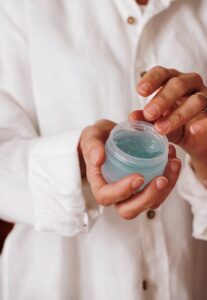10 Expert Skin Care Tips for Building the Perfect Skin Care Routine
- What is a Skin Care Routine and Why is it Important?
- How to Determine Your Skin Type
- Common Skin Concerns and How to Address Them
- Choosing the Right Skin Care Products
- The Importance of a Nighttime Skin Care Routine
- Q: What are some skin care tips for building the perfect skin care routine?
- Q: How can I determine my skin type?
- Q: How often should I wash my face?
- Q: Is exfoliation necessary for every skin type?
- Q: How can I build a nighttime skin care routine?
- Q: How can I keep my skin healthy and youthful?
- Q: What can I do to address specific skin concerns?
- Q: Can I use the same skin care routine for day and night?
- Q: When should I start incorporating anti-aging products into my routine?
- Q: Do I need to change my skin care routine as I age?
Having a proper skin care routine is essential for maintaining healthy, radiant skin. But with so many products and recommendations out there, it can be overwhelming to figure out where to start. In this article, we will provide you with expert skin care tips to help you build the perfect skin care routine. Whether you have oily, dry, or sensitive skin, these tips will guide you in creating a routine that suits your skin type and concerns.
What is a Skin Care Routine and Why is it Important?
Understanding the Basics of a Skin Care Routine
A skin care routine refers to the daily steps and products used to take care of your skin. It typically involves cleansing, toning, moisturizing, and protecting the skin. These steps are crucial for maintaining the health and appearance of your skin.
Benefits of Having a Skin Care Routine
A consistent skin care routine offers numerous benefits, regardless of your skin type or concerns. It helps to cleanse the skin, remove impurities, and unclog pores. It also helps to balance the skin’s pH levels, improve skin texture, and prevent skin conditions such as acne, dryness, and premature aging.
How Often Should You Follow a Skin Care Routine?
The frequency of your skin care routine depends on your skin type and needs. In general, it is recommended to follow a routine twice a day – once in the morning and once at night. However, if you have particularly oily or acne-prone skin, you may benefit from cleansing and moisturizing more frequently.
How to Determine Your Skin Type
Knowing Your Skin Type
Before creating a skin care routine, it is important to identify your skin type. This will help you choose the right products and address specific skin concerns effectively. The main skin types include oily, dry, sensitive, and combination skin.
Recommended Skincare Routine for Oily Skin
If you have oily skin, your skin care routine should focus on balancing oil production, reducing shine, and preventing breakouts. It is recommended to use a gentle cleanser, toner with ingredients like salicylic acid, oil-free moisturizer, and non-comedogenic sunscreen.
Recommended Skincare Routine for Dry Skin
For dry skin, the priority is to hydrate and nourish the skin. Choose a creamy, hydrating cleanser, alcohol-free toner, rich moisturizer, and a sunscreen with added hydration. Look for products containing ingredients like hyaluronic acid, ceramides, and natural oils.
Recommended Skincare Routine for Sensitive Skin
Sensitive skin requires gentle, hypoallergenic products that soothe and protect the skin. Opt for a mild cleanser, alcohol-free toner, fragrance-free moisturizer, and a mineral-based sunscreen that does not contain harsh chemicals. Look for products specifically designed for sensitive skin.
Common Skin Concerns and How to Address Them

Dealing with Acne-Prone Skin
Acne-prone skin requires a targeted approach to prevent breakouts and reduce inflammation. Use a cleanser containing salicylic acid or benzoyl peroxide, followed by an oil-free moisturizer and non-comedogenic sunscreen. Consider using spot treatments or serums with active ingredients like tea tree oil or niacinamide.
How to Manage Oily Skin and Prevent Breakouts
If you have oily skin, it’s important to use products that help control excess oil production and prevent clogged pores. Use a gentle foaming cleanser, alcohol-free toner, lightweight moisturizer with mattifying properties, and oil-free sunscreen. Look for products with ingredients like witch hazel, zinc oxide, or clay.
How to Hydrate and Nourish Dry Skin
Dry skin requires intense hydration and nourishment to restore moisture and improve skin texture. Use a creamy cleanser, alcohol-free toner, rich moisturizer or facial oil, and a sunscreen with added hydration. Look for products with ingredients like shea butter, glycerin, or ceramides.
Tips for Managing Sensitive Skin and Reducing Irritation
Sensitive skin needs extra care to minimize irritation and redness. Use a mild, fragrance-free cleanser, alcohol-free toner, gentle moisturizer, and a mineral-based sunscreen. Avoid products with potential irritants like fragrances, dyes, and alcohol. Perform patch tests before trying new products.
Choosing the Right Skin Care Products

Understanding the Ingredients in Skincare Products
It’s important to understand the ingredients in skincare products to make informed choices. Look for products with beneficial ingredients like antioxidants, hyaluronic acid, retinol, vitamin C, and peptides. Avoid products that contain potential irritants or allergens for your skin type.
Recommendations from Dermatologists for Best Skin Care Products
When choosing skincare products, it’s helpful to seek recommendations from board-certified dermatologists. They can recommend products with proven efficacy and safety for specific skin concerns. Dermatologist-recommended brands include Cetaphil, La Roche-Posay, Neutrogena, and Paula’s Choice.
Creating a Personalized Routine for Your Skin Concern
Create a personalized skin care routine by understanding your skin type and concerns. Experiment with different products and observe how your skin responds. Adjust your routine as needed to address specific concerns like fine lines, hyperpigmentation, or dull skin.
The Importance of a Nighttime Skin Care Routine
Benefits of a Nighttime Skin Care Routine
A nighttime skin care routine is essential for repairing and rejuvenating the skin while you sleep. During this time, the skin absorbs active ingredients more effectively, allowing them to penetrate deeply and work their magic. A nighttime routine helps to nourish, hydrate, and strengthen the skin’s barrier.
Steps to Follow in a Nighttime Skin Care Routine
A basic nighttime skin care routine consists of cleansing, exfoliating, applying treatments or serums, moisturizing, and applying an eye cream. It is also important to remove makeup and sunscreen before bed. Consider incorporating products like retinol, hyaluronic acid, or peptide-based serums for specific concerns.
Recommended Nighttime Skincare Products
Some recommended nighttime skincare products include a gentle cleanser, chemical exfoliant (such as glycolic or lactic acid), retinol-based serum or cream, hydrating moisturizer, and an eye cream. Choose products that suit your skin type and address your specific concerns.
At the end of the day, building a perfect skin care routine requires time, patience, and trial and error. Remember to protect your skin from the sun by using sunscreen daily, regardless of your skin tone. If you have any concerns or skin conditions, it is best to consult a board-certified dermatologist who can guide you in the right direction.
Q: What are some skin care tips for building the perfect skin care routine?
A: Here are some expert tips to help you build the perfect skin care routine: 1. Know your skin type: Whether you have oily, dry, combination, or sensitive skin, understanding your skin type is crucial in selecting the right products. 2. Cleanse daily: Use a gentle cleanser to remove dirt, oil, and makeup from your skin. 3. Exfoliate regularly: Exfoliating helps remove dead skin cells and promotes a smoother complexion. 4. Moisturize: Hydrating your skin is vital to maintain its health and protect its barrier. 5. Use sunscreen: Apply a broad-spectrum sunscreen with at least SPF 30 daily to protect your skin from harmful UV rays. 6. Treat specific concerns: If you have acne, wrinkles, or dark spots, incorporate targeted treatments into your routine. 7. Incorporate antioxidants: Antioxidants can help fight free radicals and keep your skin looking youthful. 8. Don’t forget your eyes and lips: Use a separate eye cream and lip balm to address these delicate areas. 9. Be consistent: Consistency is key to seeing results. Stick to your routine and give your skin time to adjust. 10. Consult a dermatologist: If you’re unsure about which products or ingredients to use, consult a dermatologist for personalized recommendations.
Q: How can I determine my skin type?
A: Determining your skin type is crucial in choosing the right skin care products. Here’s how you can do it: 1. Observe your skin: Pay attention to how your skin feels and looks throughout the day. 2. Wash your face: Use a gentle cleanser and pat your skin dry. 3. Wait for an hour: Let your skin rest for an hour without applying any products. 4. Evaluate your skin: Check for any oiliness, dryness, tightness, or sensitivity. By observing these factors, you can determine whether you have oily, dry, combination, or sensitive skin.
Q: How often should I wash my face?
A: It’s recommended to wash your face twice a day – once in the morning and once at night. Cleansing in the morning helps remove excess oil and impurities that have accumulated overnight. Cleansing at night removes dirt, makeup, and pollutants from the day, allowing your skin to breathe and regenerate during sleep.
Q: Is exfoliation necessary for every skin type?
A: Exfoliation is beneficial for most skin types, but the frequency and method may vary. For oily and acne-prone skin, exfoliating 2-3 times a week can help unclog pores and prevent breakouts. If you have sensitive or dry skin, opt for a gentler exfoliant and limit it to once a week to avoid irritation.
Q: How can I build a nighttime skin care routine?
A: Building a nighttime skin care routine is essential to repair and rejuvenate the skin while you sleep. Here are the steps to follow: 1. Cleanse: Start by thoroughly cleansing your face to remove makeup, dirt, and pollutants. 2. Tone: Use a toner to balance your skin’s pH levels and prepare it for the next steps. 3. Treat: Apply any serums or treatment products that target specific skin concerns, such as acne or aging. 4. Moisturize: Apply a moisturizer to hydrate and nourish your skin overnight. 5. Eye cream: Gently pat on an eye cream to address under-eye concerns and prevent fine lines. 6. Lip balm: Finish off with a nourishing lip balm to keep your lips moisturized. Remember to allow each product to fully absorb into your skin before applying the next one.
Q: How can I keep my skin healthy and youthful?
A: To keep your skin healthy and youthful, follow these tips: 1. Protect from the sun: Always wear sunscreen and seek shade when the sun is strongest. 2. Hydrate: Drink plenty of water to keep your skin hydrated and maintain its elasticity. 3. Eat a balanced diet: Include fruits, vegetables, and foods rich in antioxidants to nourish your skin from within. 4. Get enough sleep: Aim for 7-9 hours of quality sleep each night to allow your skin to regenerate. 5. Manage stress: Chronic stress can affect your skin’s health, so find healthy ways to manage stress. 6. Don’t smoke: Smoking accelerates the aging process and damages collagen and elastin in the skin. 7. Avoid excess alcohol: Excessive alcohol consumption can dehydrate the skin and cause inflammation. 8. Cleanse gently: Use a gentle cleanser and avoid scrubbing or using harsh products that can strip the skin. 9. Stay active: Regular exercise improves circulation, enhances skin health, and gives you a natural glow. 10. Use quality skin care products: Choose products formulated for your skin type and concerns.
Q: What can I do to address specific skin concerns?
A: To address specific skin concerns, consider incorporating the following into your routine: – Acne-prone skin: Use products containing salicylic acid or benzoyl peroxide to help control breakouts. – Aging skin: Look for products with ingredients like retinol, hyaluronic acid, and peptides to reduce fine lines and wrinkles. – Dark spots: Treat dark spots with products containing ingredients like vitamin C, niacinamide, or kojic acid. – Dry skin: Opt for rich moisturizers and hydrating ingredients like hyaluronic acid. – Oily skin: Use lightweight, oil-free products and consider incorporating a mattifying primer into your makeup routine. – Sensitive skin: Look for gentle, fragrance-free products and avoid harsh ingredients like alcohol or fragrances.
Q: Can I use the same skin care routine for day and night?
A: While some products can be used both day and night, it’s beneficial to have separate routines. Daytime routines should focus on protecting your skin from environmental aggressors, including sunscreen. Nighttime routines aim to repair and rejuvenate your skin while you sleep. Additionally, some products may have specific ingredients or concentrations that make them more suitable for day or night use.
Q: When should I start incorporating anti-aging products into my routine?
A: It’s never too early to start taking care of your skin and preventing premature aging. While the specific age will vary for each individual, it’s generally recommended to begin incorporating anti-aging products into your routine in your late 20s or early 30s. Look for ingredients like retinol, vitamin C, and peptides that help boost collagen production and fight against signs of aging.
Q: Do I need to change my skin care routine as I age?
A: Yes, as you age, your skin’s needs change, and it’s essential to adapt your routine accordingly. As you get older, you may need to incorporate more hydrating products, antioxidants, and targeted treatments for specific concerns like wrinkles or age spots. Consult a dermatologist to help tailor your routine to your evolving skin needs.




